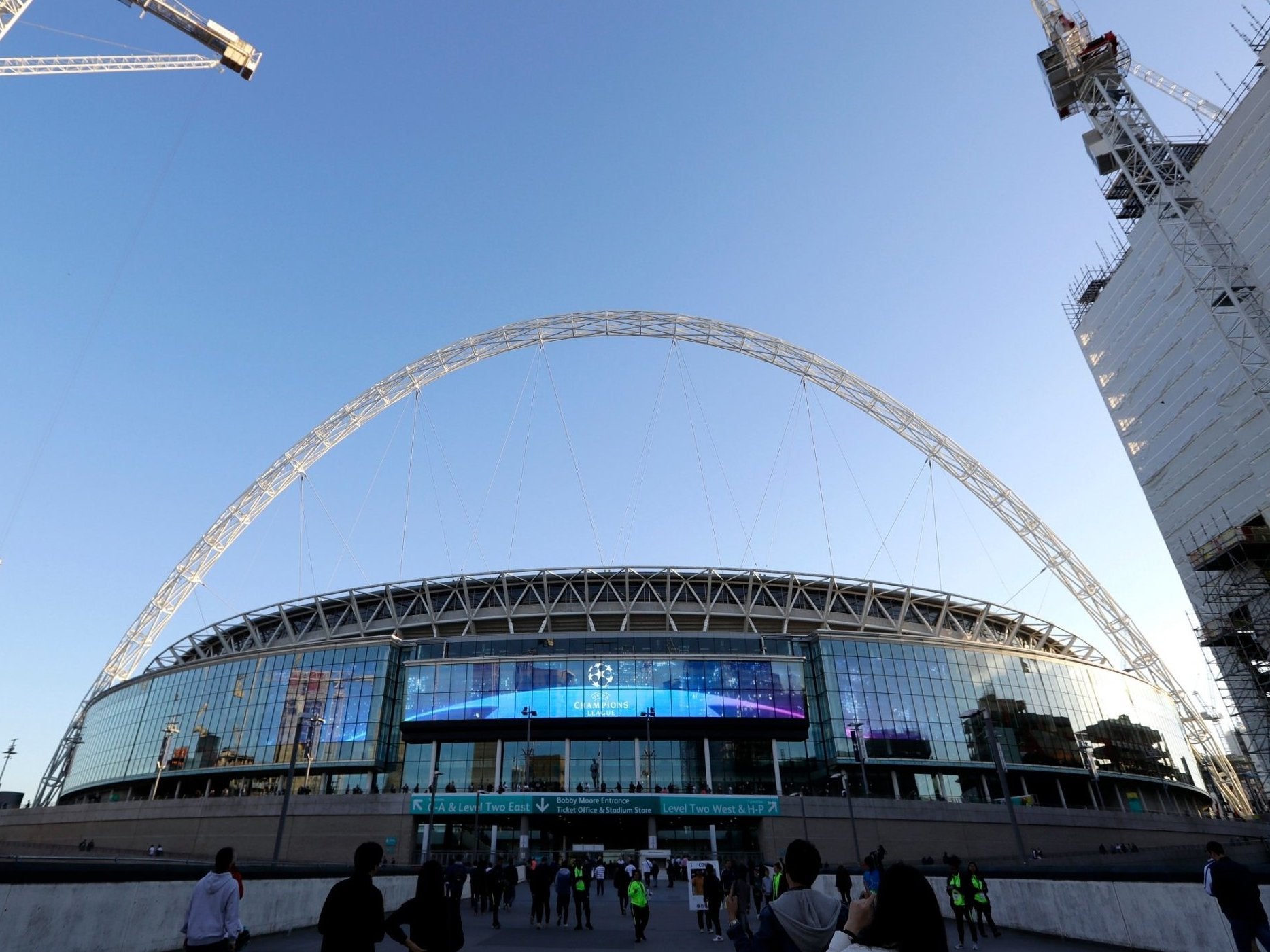England vs USA: Bags banned from ‘prime target’ Wembley for friendly, says FA chief Martin Glenn
England play the United States in a friendly on 15 November in what is the stadium’s biggest ever security operation

Your support helps us to tell the story
From reproductive rights to climate change to Big Tech, The Independent is on the ground when the story is developing. Whether it's investigating the financials of Elon Musk's pro-Trump PAC or producing our latest documentary, 'The A Word', which shines a light on the American women fighting for reproductive rights, we know how important it is to parse out the facts from the messaging.
At such a critical moment in US history, we need reporters on the ground. Your donation allows us to keep sending journalists to speak to both sides of the story.
The Independent is trusted by Americans across the entire political spectrum. And unlike many other quality news outlets, we choose not to lock Americans out of our reporting and analysis with paywalls. We believe quality journalism should be available to everyone, paid for by those who can afford it.
Your support makes all the difference.The Football Association has banned supporters from carrying bags into Wembley when England play the United States in a friendly on 15 November, in what is the stadium’s biggest ever security operation. The FA chief executive, Martin Glenn, said that his organisation has been advised by security forces that the national stadium remains a “prime target”.
“We know from security forces that Wembley is a prime target,” Glenn said in an interview with The Daily Telegraph. “The next match, when America play here, for the first time we are doing a bag-drop where you can’t take bags in. You will get to airport-style security at some point. Just think of the Manchester [Arena] bombing.”
Wembley has recently been the subject of intense public debate after the American billionaire Shahid Khan offered the FA £600m to buy the stadium. The bid was rejected and the FA insisted the stadium is “not for sale”, but Glenn – who had supported the sale – warned that the £15m annual running costs will make the venue an expensive burden, and that it is falling well behind high-tech stadiums like Tottenham Hotspur’s new ground, set to open at White Hart Lane in the coming months.
“I think, looking into the future, we will have to spend a lot of money. Wembley was designed in the 1990s, built in the 2000s and it kind of looks like it. People’s expectation of hospitality rise, and people’s expectation of connectivity rise. That’s one of the reasons the Spurs stadium is taking so long – everything is connected with the fibre optics. It will be brilliant when it is finished. When you go to watch Spurs play, you will be able to follow match details on your phone and we haven’t got that level. So, that will be stuff we need to do, too.”
Of Khan’s proposed offer, Glenn added: “It [the future spending] is all predicated on the fact that Wembley is fabulous and it would be a shame if you limped along [without improving the stadium]. But if you have someone with deeper pockets [who] as a trade-off says, ‘I can make the stadium look fabulous and you can keep using it, without spending £15m a year on it’, that would be good.
“It all made sense from a business perspective but I think the rationale has been whatever we make from Wembley we ring-fence, and make that available for community facilities. I think that was the right thing. There was the suspicion the FA don’t know how to spend it, it’ll get frittered away and there was taxpayers’ money involved as well.”
Join our commenting forum
Join thought-provoking conversations, follow other Independent readers and see their replies
Comments